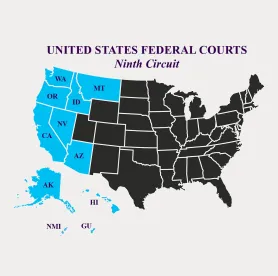On December 22, 2020, the U.S. District Court for the Northern District of California issued a nationwide preliminary injunction banning the enforcement of Sections 4 and 5 of Executive Order 13950 (EO 13950), a sweeping federal directive whose stated aim is “to combat offensive and anti-American race and sex stereotyping and scapegoating” by prohibiting federal contractors and grantees from inculcating such views in their diversity and inclusion workplace trainings.
A Quick History of the Controversy
Since the inception of the Executive Order, the Office of Federal Contract Compliance Programs (OFCCP) has taken several enforcement steps, including issuing nine frequently asked questions, publishing a Request for Information (RFI) in the Federal Register, and establishing a hotline and email address to receive and investigate complaints. Recently, government agencies, including the Department of Defense (DOD) and the National Aeronautics and Space Administration (NASA), began issuing memoranda to implement the requirements of the Executive Order in their agency solicitations and contracts.
Still, the Executive Order was met with immediate challenges, including an October 15, 2020, letter to the president from the U.S. Chamber of Commerce requesting that it be withdrawn. This was followed in quick succession by a class action federal lawsuit filed on October 29, 2020, in the District of Columbia by the NAACP on behalf of the National Urban League, the National Fair Housing Alliance and all others similarly situated, challenging the constitutionality of EO 13950. Additionally, on November 2, 2020, a group of nonprofit community organizations and consultants serving the LGBT community filed a similar federal complaint in the Northern District of California in Santa Cruz Lesbian and Gay Cmty. Ctr., et al. v. Trump, N.D. Cal., No. 5:20-cv-07741.
As health care providers to the LGBT community and entities that train law enforcement, corrections officers and government agencies on systemic racism and implicit bias, plaintiffs in the California lawsuit alleged that EO 13950 violates the First Amendment by censoring or stopping trainings because of threats of loss, cancellation and/or termination of federal contracts and grants. The complaint further asserted that EO 13950 is unconstitutionally vague in violation of the due process clause of the Fifth Amendment because it fails to provide notice of what speech is prohibited. On November 16, 2020, the plaintiffs filed a motion for a nationwide preliminary injunction seeking to enjoin the enforcement of the Executive Order. The plaintiffs subsequently narrowed the scope of the motion for preliminary injunction to apply to only two of the Executive Order’s 10 sections: Section 4 and Section 5.
Section 4 of the Executive Order is directed at federal contractors and requires, in part, all government contracts entered into on or after November 21, 2020, include a provision noting that the “[t]he contractor shall not use any workplace training that inculcates in its employees any form of race or sex stereotyping or any form of race or sex scapegoating.” Failure to comply with the Executive Order has potential dire consequences, including contracts being “canceled, terminated, or suspended in whole or in part and the contractor may be declared ineligible for further Government contracts.” Section 5 of the Executive Order is directed at federal grants and requires agency heads to review all grant programs to determine which grants may be conditioned on the recipient’s certification that federal funds will not be used to promote concepts that the Executive Order characterizes as “divisive.”
The Court’s Stance
The District Court ultimately found that the preliminary injunctive relief was warranted with respect to challenges to Sections 4 and 5 of the Executive Order under both the free speech clause of the First Amendment and the due process clause of the Fifth Amendment. Notably, the preliminary injunction does not apply to the remaining sections of the Executive Order, including those that address the United States Uniformed Services and federal agencies’ training of their own personnel.
Although the preliminary injunction is a significant win for the government contracting community, it is not a permanent injunction and it is unknown whether the government will appeal the order. As a result, government contractors must also wait and see if President-elect Biden’s administration will repeal the Executive Order as anticipated upon taking office. Thus, Faegre Drinker will continue to issue reports on the Executive Order as legal updates are announced.






 />i
/>i

